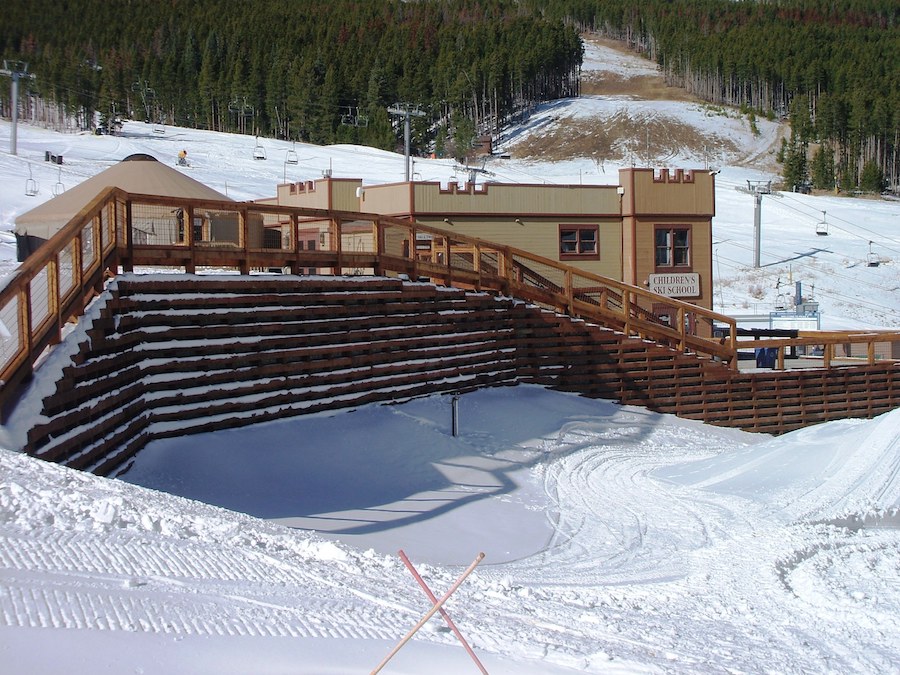Protecting and Preparing Your Fence for Winter
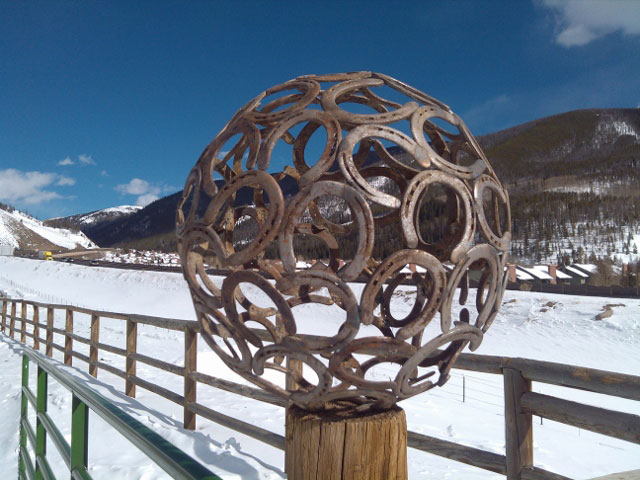
Harsh weather conditions are a part of life in the Colorado High Country. The things we love about winter – excessive snow and magical ski conditions – can wreak havoc on your fence. And wood fences aren’t the only kind that fall victim to the ice, wind and cold; fences of all materials are subject to winter damage and must be properly maintained and protected to ensure their life throughout the upcoming season and years to come.
Winter tends to make a much earlier debut in Summit County than in lower altitudes. While we hope you enjoy a couple more weeks of boats, beers, and barbecues, don’t make the mistake of letting basic fence maintenance pass you by before it’s too late. Make sure your iron, wood or vinyl fencing is ready by the time Ullr decides to bless us with the fluffy white stuff!
Protecting Your Wood Fence
Rot, mold, and mildew are among the most common symptoms of a damaged or decaying wood fence, often the result of long, harsh winters. The first step to ensuring your fence won’t face too many issues is to choose the right wood and have your fence properly instructed and installed by a knowledgeable Colorado fencing contractor. If that ship has already sailed, there are still preventative measures you can take to ensure your fence makes it through the upcoming season.
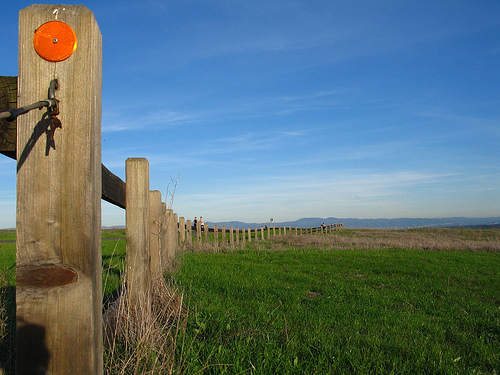
Take an afternoon this fall to walk the perimeter of your fence and careful inspect it for soft areas or termite holes. These are damaged areas that will only grow worse as the months proceed. Fill in any holes or weak spots with patches and replace boards that exhibit extensive damage. Because we reside in a dry climate with temperamental weather, you might also discover long vertical cracks in posts or boards. You will definitely want to have these sections replaced as the upcoming cold weather tends to warp wood.
It may also be time to re-up on your wooden fence’s stain and seal. Just because you sealed your fence once doesn’t mean you never have to do it again. If water droplets immediately absorb into your fence, so will six months worth of snow.
Protecting Vinyl Fencing
One of the upsides to vinyl fencing is that it requires far less preparation than its wooden cousin, so don’t concern yourself with water droplet tests or the possibility of termites. With that being said, snow likes to stick to vinyl, and a heavy buildup of snow and ice on your fence can result in warping or breakage. It’s a good idea to clear away unneeded weeds, shrubbery or other obstructions that will hinder you from accessing your fence to clear away snow during the winter.
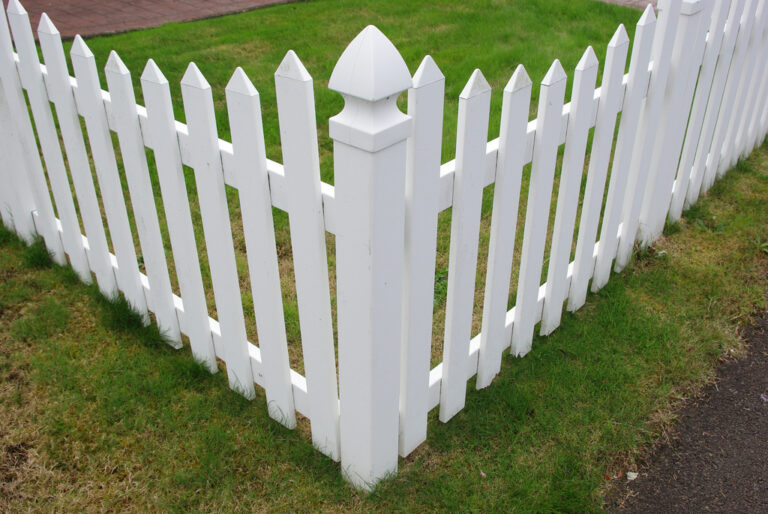
Since vinyl fencing tends to be popular in front yards as it adds that “white picket fence pop,” vinyl fences are vulnerable to snowblowers and routine shoveling. Designate an area to shovel or blow that won’t lead to buildup around your fence. If you end up needing to remove snow from your vinyl fence, try and opt for a broom unless you don’t mind scratches!
Remember, since vinyl fences are usually white, they blend in with the snow. This is why it’s important to keep snow from camouflaging your fence this winter, especially if it’s located near your property lines where a snowplow might do some unintentional yet serious damage.
Iron Fencing and Winter
In addition to providing a classically gothic look (beautiful for historical homes!) iron fencing comes with the benefit of easy maintenance and preparation. Thanks to its strong, durable material, you won’t find rot or termites leading to the demise of your iron fence. This doesn’t mean, however, that your iron fence is resistant to the elements of a Colorado winter.
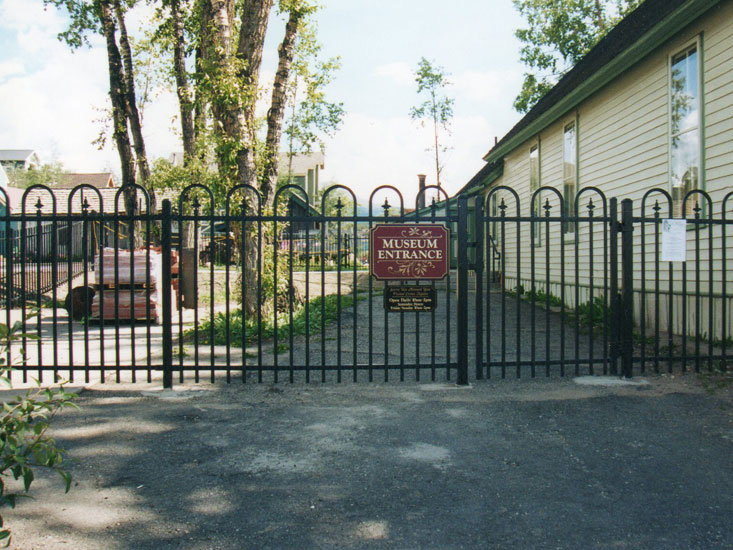
One of the biggest problems iron fencing faces while you’re out on the slopes this coming season is shifting grounds due to extreme weather conditions (causing soil to expand and contract). This can lead to fence warping and displacement of your fence posts, hence why it is so important to hire an expert Colorado fencing contractor who understands the unique nature of installing fences in the High Country. If you’ve already checked that off the list, make sure to keep the footing (posts) areas of your iron fence cleared from snow, ice and debris this winter in order to ensure its structural integrity.
It’s also a good idea to give your fence a good cleaning before the temperatures drop in order to help prevent corrosion and guarantee its longevity.
Bottom Line
If you’re concerned about the structural integrity or overall wellbeing of your fence these last few weeks of summer, give Strategic Fence & Wall a call for a quick consultation. We’re happy to come survey the status of your fence and make sure it’s in top shape for winter so you can enjoy another great year out on the slopes! Remember: fall is short in the Colorado High Country!

